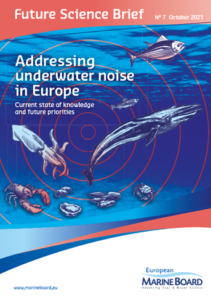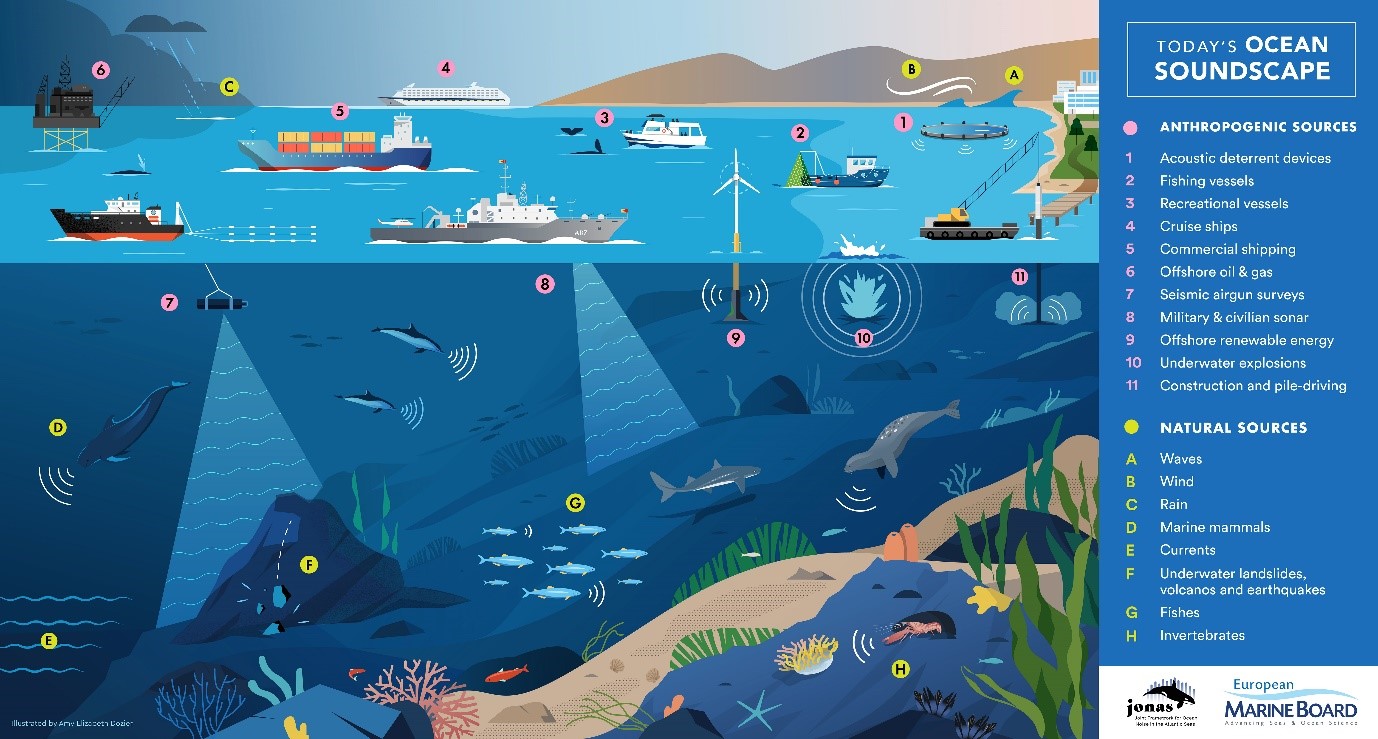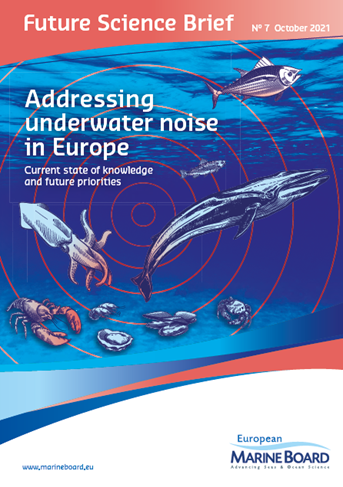On Wednesday 20 October 2021, the European Marine Board (EMB) launched its Future Science Brief № 7 Addressing underwater noise in Europe: Current state of knowledge and future priorities. The publication focuses on the sources of anthropogenic sounds and the effects of noise on marine organisms and identifies research gaps and recommends priority actions for the development of proportionate mitigation strategies and effective regulation of underwater noise.

The publication can be downloaded from the EMB website and is an official output of the European Marine Board, a strategic pan-European Forum of 35 Member Organizations including key marine research performing institutes, funding agencies and university consortia. The publication was developed by the EMB working group on underwater noise.
About the Future Science Brief
The Ocean presents a cacophony of sounds originating from natural as well as anthropogenic sources. Marine organisms heavily rely on sound to communicate and understand the world around them, and are therefore potentially impacted by anthropogenic sound. However, in developing our Blue Economy and in advancing our knowledge of marine environments and ecosystems, anthropogenic noise is (sometimes) unavoidable. Understanding the potential effects of anthropogenic noise is therefore integral to addressing this conflict, as it is needed to develop proportionate mitigation strategies and effective regulation.

Next to providing an overview of our current knowledge about underwater noise, this publication highlights the priority areas for further research addressing the remaining knowledge gaps about the effects of anthropogenic noise. Furthermore, it points out the relevant actions needed to take in order to ensure ecosystem-based and precautionary legislation.
Download: Addressing underwater noise in Europe: Current state of knowledge and future priorities
The Belgian Federal State is represented in the EMB by the Belgian Federal Science Policy Office (BELSPO) and in the EMB Communications Panel by the Royal Belgian Institute of Natural Sciences (RBINS).

